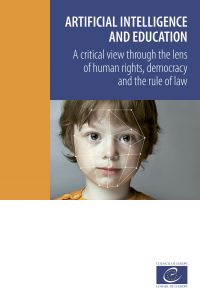Artificial intelligence and education
Éditeur : Council of Europe
ISBN numérique ePub: 9789287193247
Parution : 2022
Catégorisation :
Livres numériques /
Autre /
Autre /
Autre.
Formats disponibles
| Format | Qté. disp. | Prix* | Commander |
|---|---|---|---|
| Numérique ePub Protection filigrane*** |
Illimité | Prix : 49,99 $ |
*Les prix sont en dollars canadien. Taxes et frais de livraison en sus.
***Ce produit est protégé en vertu des droits d'auteurs.
Description
Ensuring that AI empowers educators and learners, not over-empowers them, and that future developments and practices are truly for the common good.
Artificial intelligence (Al) is increasingly having an impact on education, bringing opportunities as well as numerous challenges. These observations were noted by the Council of Europe’s Committee of Ministers in 2019 and led to the commissioning of this report, which sets out to examine the connections between Al and education (AI&ED). In particular, the report presents an overview of AI&ED seen through the lens of the Council of Europe values of human rights, democracy and the rule of law; and it provides a critical analysis of the academic evidence and the myths and hype.
The Covid-19 pandemic school shutdowns triggered a rushed adoption of educational technology, which increasingly includes AI-assisted classrooms tools (AIED). This AIED, which by definition is designed to influence child development, also impacts on critical issues such as privacy, agency and human dignity – all of which are yet to be fully explored and addressed. But AI&ED is not only about teaching and learning with AI, but also teaching and learning about AI (AI literacy), addressing both the technological dimension and the often-forgotten human dimension of AI.
The report concludes with a provisional needs analysis – the aim being to stimulate further critical debate by the Council of Europe’s member states and other stakeholders and to ensure that education systems respond both proactively and effectively to the numerous opportunities and challenges introduced by AI&ED.























